How to achieve gender equality in the global clothing supply chain
Over the past few decades, global supply chains have provided a key entry point for women into the formal labor force, providing unprecedented opportunities for women to develop and improve skills and improve incomes and livelihoods.
However, despite the economic empowerment of women through global supply chains, as in other parts of the labor market, decent work deficits, including discrimination, violence and harassment, remain widespread.
With a fairer set of policies and actions, millions of workers can be lifted out of poverty and drive inclusive economic growth.
A bird's-eye view of the global apparel industry
In 2019, global apparel exports were valued at $1,038 billion. The industry has lost an estimated 20% of its value in 2020 and 2021, the years of the COVID-19 pandemic, but recent indicators point to a promising recovery underway. For example, in 2021, the value of garment exports from Southeast Asia will be 22% higher than in 2019.
The apparel industry is also an important source of employment, providing employment to some 94 million workers worldwide. While trends vary by region and country, nearly 60 percent of garment workers globally are women, reaching nearly 80 percent in some regions.
Asia is the largest employer of workers in the garment industry, accounting for 75% of all workers. An estimated 42 million female garment workers are employed in Asia.
Women's share of total employment in the garment industry in Asia(%)
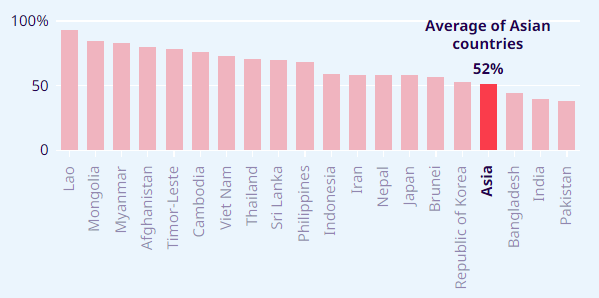
The latest data points for each country. The average of Asian is based on a weighted average of 34 countries.
Lack of decent work remains widespread
Partly due to biases that place the burden of household and caregiving responsibilities on women, female workers—often more than men— usually tend to be involved in home production or work for small businesses at the lower echelons of the apparel supply chain.
As workers in the informal economy, they often face very vulnerable and precarious working conditions, often without access to social security, labor law coverage, health care or minimum wage protection.
These shortages of decent jobs are exacerbated by the dominant "fast fashion" business model of the global apparel industry: producing cheap garments that change quickly according to trends and relying heavily on low production costs, including labor costs.
Gender inequality: What are the four biggest challenges facing female garment workers?
1. Women Fight for Their Voices
Efforts to protect workers' rights, including women's rights, remain a formidable challenge in the context of generally weak social dialogue at the enterprise and industry levels in many countries.
Other challenges include promoting women's participation in committees and bodies that enable social dialogue and collective bargaining, and their access to managerial positions.
These challenges are related to misconceptions about women's goals, preferences and capabilities, and to the often unequal share of unpaid care work they undertake in the home.
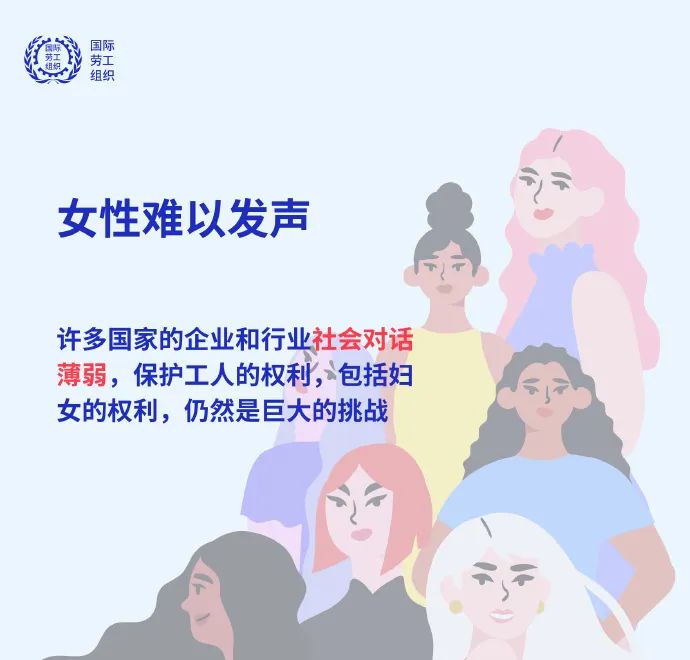
2. Women lag behind men in equal pay
Women workers hold a disproportionate share of low-wage jobs at the lower echelons of the industry's supply chain and have consistently lagged behind men in terms of equal pay.
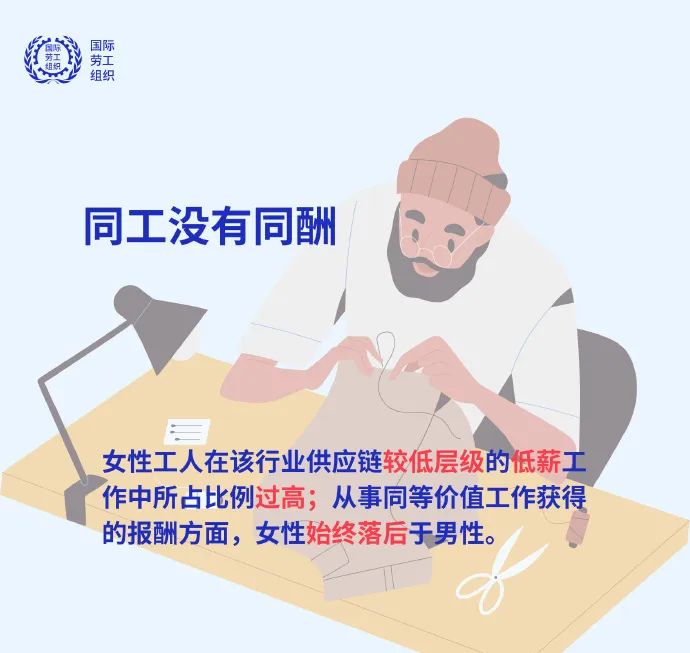
3. Women's care responsibilities limit their opportunities
Women workers with children – especially those with lower levels of education – face additional challenges and barriers in the workplace.
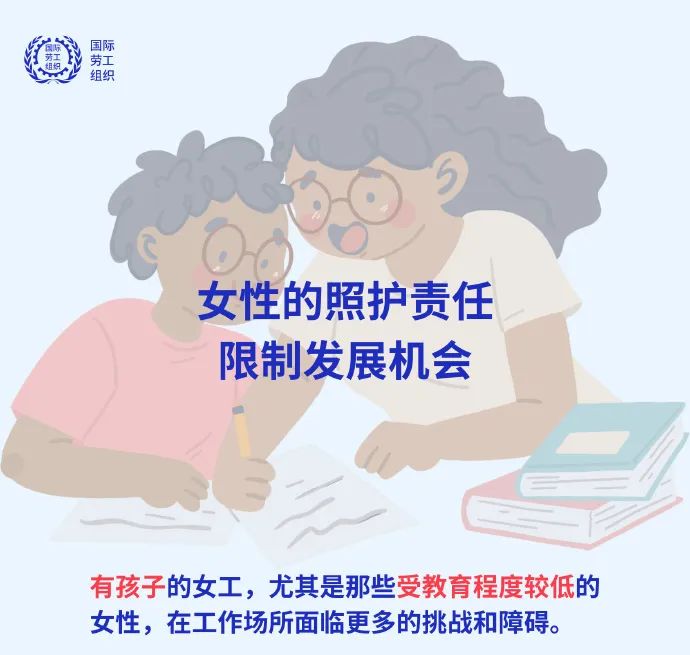
4. Women are more vulnerable to discrimination, violence and harassment
Whether in the workplace or on the commute, sexual harassment and violence continue to be a problem for women in the apparel industry. The problem has increased during the pandemic due to heightened tensions due to economic insecurity, as well as women's reduced earnings and the resulting loss of household bargaining power.
Additionally, many migrant workers astricted in dormitories are unable to escape their abusers.
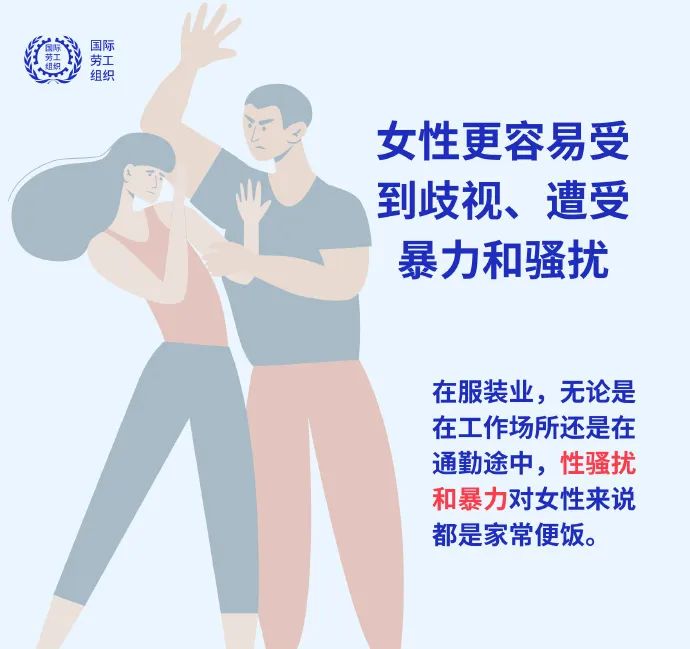
A just transition paves the way for gender equality
Achieving a just transition across the apparel industry is becoming increasingly important to achieving gender equality. It’s not just the sector’s heavy environmental footprint that needs urgent action. Climate change is having a clear impact on employment, and women and men are being affected differently.
A just transition means that society effectively addresses the needs of women workers, which may differ from those of men, and creates new job opportunities for displaced women workers.
How to promote decent work in the garment industry
All workers should have access to decent jobs. Policies and actions by country members and global actors must focus on the following key needs.
- Equal pay for equal work, transparently implemented and monitored across all aspects of the apparel industry supply chain.
- Achieve gender equality in leadership, management and decision-making at all levels within the supply chain, including workers' and employers' organizations. Sectoral strategies are needed to address this gap, as do associated training and skills development programmes.
- Safe and healthy workplaces that are free from discrimination, violence and harassment – including gender-based violence and harassment – and support women’s health and wellbeing, including sexual and reproductive health and rights.
- Reducing the burden of unpaid care work for women with reduced and/or flexible working hours, and maternity protection and paternity and parental leave in compliance with international labor standards
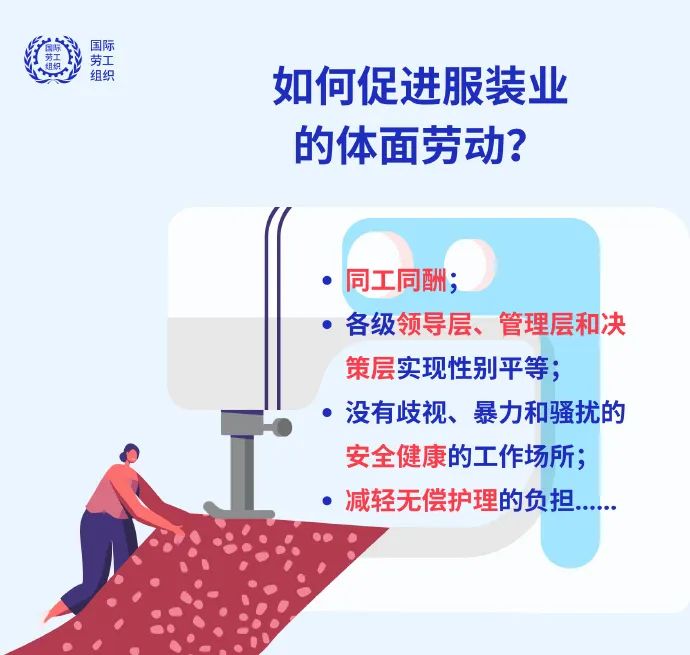
Leverage is a responsible third-party supply chain management service company. It is the certification body of China National Certification and Accreditation Administration (CNCA-R-2020-707), the inspection and appraisal body of China National Accreditation Service for Conformity Assessment (CNAS IB0605), the LCA full life cycle green management professional committee, also recognized by many international organizations, such as UNGC, UNEP, AWS, ILO, etc. It can provide customers with carbon verification, carbon discharge, carbon neutral roadmap preparation, ISO management system certification, ISO37301 compliance management system training and certification, corporate social responsibility strategy consulting, ESG report preparation and verification, ESG strategy consulting and other related services , Hoping to help enterprises achieve their sustainable development goals.
Leverage is authorized by ILO International Labor Organization SCORE sustainable development project. It can provide enterprises with seven modules of training on workplace cooperation, including: workplace cooperation - the foundation of corporate success; quality - focusing on continuous improvement; cleaner production brings productivity; win-win human resources management; Productivity Platform; Business Continuity Plan-Helping Enterprises Overcome Challenges; Gender Equality-Creating Greater Value for Enterprises.
Leverage hopes to help companies improve workplace conditions, through full participation and continuous improvement, improve workplace cooperation, promote gender equality practices in organizations, create a fair, unbiased and inclusive workplace for female employees, and enhance the careers of female employees development and increase the productivity and competitiveness of enterprises.
ISO management system certification | service certification | product certification | product inspection and testing services | corporate ESG strategy consulting | ESG report preparation | ECOVADIS/SBTI technical support | ESG-related capacity building | AA1000 enterprise sustainable development (EGS) report verification
If you want to know more information, please contact us:
■ Shanghai :
Leverage Limited (Shanghai) Co., Ltd.
Address: Room 402, No 2. Building, No .1328, Hengnan Rd, Shanghai, China
Phone: + 86 21 64067720
Email: cs@leveragelimited.com
■ Hongkong :
Leverage Global Limited
Address: Room 1318-19, Hollywood Plaza, 610 Nathan Road, Mongkok, Kowloon, Hong Kong
Phone: + 852 9045 0526
Email: info@leveragelimited.com
Need More Information?Please leave us a message:


